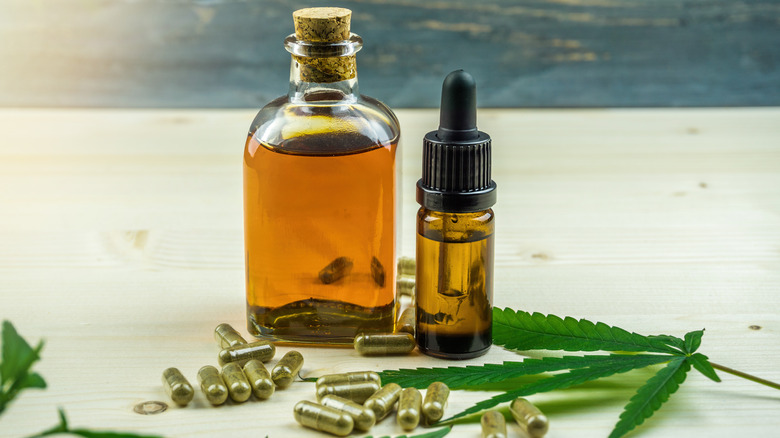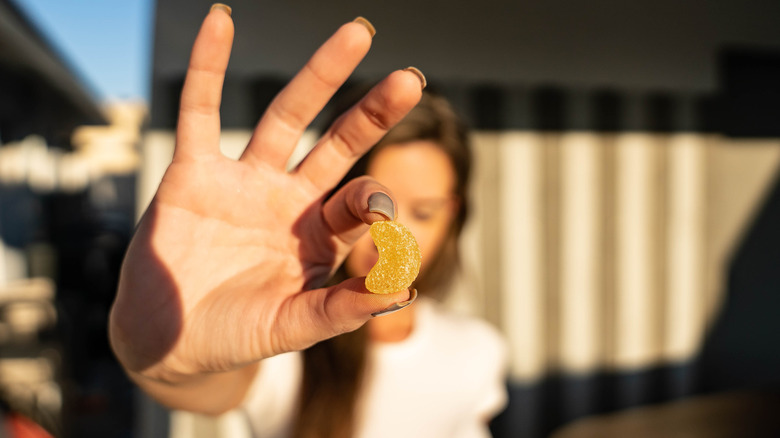Is CBD Legal In Every State?
Cannabidiol (CBD) is a nonintoxicating chemical compound found in marijuana and hemp — two varieties of the cannabis sativa plant. While CBD doesn't have any psychoactive properties and cannot get you high, it has been lauded for its potential health benefits (via Healthline). Although research on CBD is limited due to legal restrictions on the research and use of cannabis, some studies have found that consuming CBD may help reduce pain, anxiety, and depression, among other ailments.
This is most likely due to the way that CBD impacts the endocannabinoid receptors in the nervous system, which help regulate a number of important bodily functions, including stress, sleep, digestion, memory, immune response, and the release of hormones (via Good Housekeeping). As a result, CBD products seem to be everywhere these days. You can vape CBD oil, eat CBD gummies, and even drink CBD lattes. But is it actually legal in all 50 states?
Not all CBD is legal
Thanks to the 2018 Farm Bill, CBD is legal on the federal level. However, that doesn't mean all CBD is legal (via Good Housekeeping). Only hemp-derived CBD that contains no more than 0.3% THC is currently considered legal in the U.S. That's because marijuana is still illegal under federal law and is still classified as a Schedule 1 substance, despite being legal for medicinal and recreational purposes in many states. That means that buying and selling CBD derived from marijuana is still against the law. And even then, federal legality doesn't guarantee state legality.
Despite the Farm Bill, hemp-derived CBD is currently illegal in states like Iowa (via Discover). Since individual states have their own controlled substances acts, they can forbid substances that are legal on the federal level. That's why it's important to check your own state's laws to find out whether or not CBD is legal near you.


